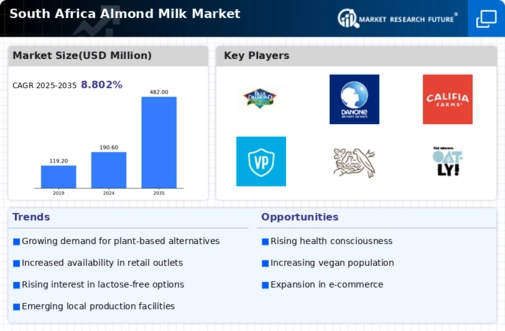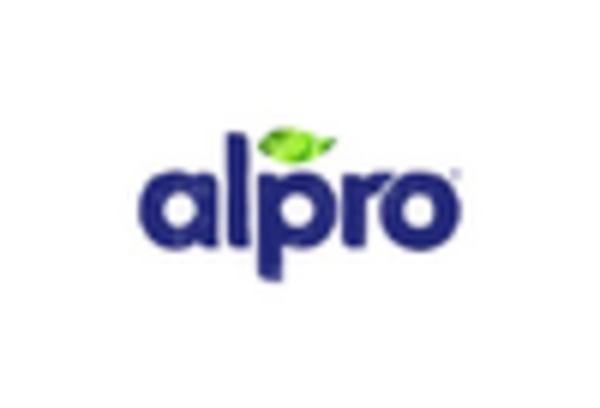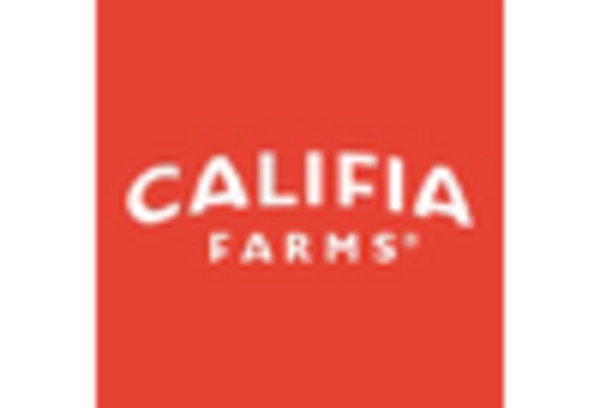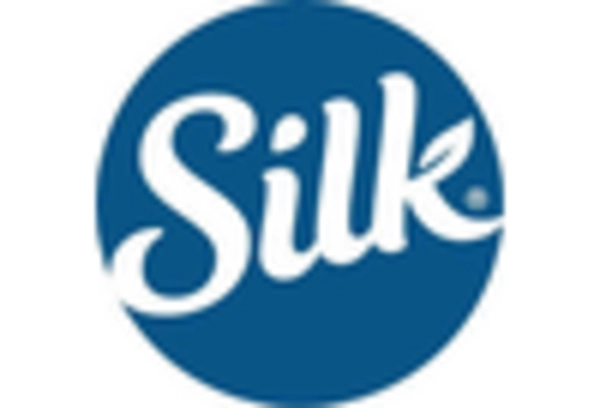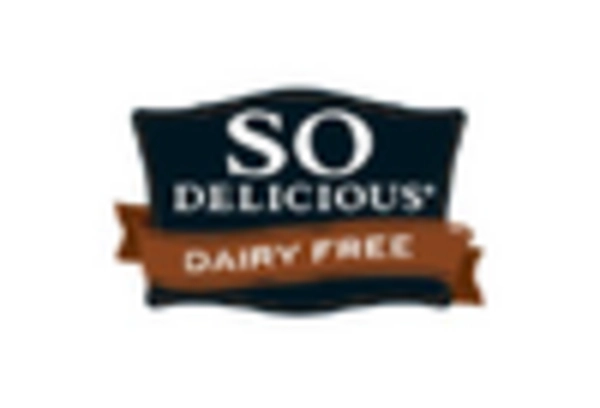Influence of Social Media and Marketing
The almond milk market in South Africa is increasingly shaped by the influence of social media and targeted marketing strategies. Brands are leveraging platforms like Instagram and Facebook to promote almond milk as a trendy and desirable product. Influencers and health advocates often showcase almond milk in recipes and lifestyle content, which resonates with younger consumers. This marketing approach appears to be effective, as data indicates that social media campaigns can boost product awareness and sales by up to 30%. The almond milk market is thus adapting to these digital trends, focusing on engaging content that highlights the versatility and benefits of almond milk. As more consumers are exposed to these marketing efforts, the likelihood of increased adoption of almond milk products in South Africa rises, potentially leading to sustained growth in the market.
Sustainability and Environmental Concerns
The almond milk market in South Africa is positively impacted by growing sustainability and environmental concerns among consumers. As awareness of climate change and resource depletion increases, many individuals are seeking eco-friendly alternatives to traditional dairy products. Almond milk, often viewed as a more sustainable option due to its lower carbon footprint compared to cow's milk, aligns with these consumer values. The almond milk market is likely to benefit from this trend, as consumers are willing to pay a premium for products that contribute to environmental sustainability. Market Research Future indicates that approximately 25% of South African consumers prioritize sustainability in their purchasing decisions, suggesting a strong potential for growth in the almond milk sector as it aligns with these values.
Rising Demand for Plant-Based Alternatives
The almond milk market in South Africa experiences a notable increase in demand for plant-based alternatives, driven by a growing awareness of health and environmental issues. Consumers are increasingly seeking dairy-free options due to lactose intolerance and vegan lifestyles. This shift is reflected in market data, indicating that the plant-based milk segment, including almond milk, has grown by approximately 20% in recent years. The almond milk market benefits from this trend as consumers prioritize sustainable and ethical food choices, leading to a broader acceptance of almond milk as a staple in households. Retailers are responding by expanding their offerings, thus enhancing the visibility and availability of almond milk products. This trend suggests a long-term shift in consumer preferences, which could further solidify the position of almond milk in the South African beverage market.
Increased Awareness of Nutritional Benefits
The almond milk market in South Africa is significantly influenced by the rising awareness of the nutritional benefits associated with almond milk consumption. Almond milk is often perceived as a healthier alternative to traditional dairy milk, being lower in calories and fat while providing essential vitamins and minerals. This perception is supported by nutritional studies that highlight the benefits of almond milk, such as its high vitamin E content and potential heart health advantages. As consumers become more health-conscious, the almond milk market is likely to see an uptick in sales, with many consumers opting for almond milk as part of a balanced diet. Market data suggests that the health benefits of almond milk could drive a 15% increase in its consumption over the next few years, further establishing its role in the South African beverage landscape.
Expansion of Retail Channels and Accessibility
The almond milk market in South Africa is experiencing growth due to the expansion of retail channels and improved accessibility of almond milk products. Supermarkets, health food stores, and online platforms are increasingly stocking a variety of almond milk brands and flavors, catering to diverse consumer preferences. This expansion is crucial, as it enhances the visibility of almond milk and makes it more accessible to a broader audience. Market data shows that the availability of almond milk in retail outlets has increased by over 40% in the past few years. The almond milk market is thus poised for further growth as more consumers discover and try almond milk, driven by the convenience of purchasing it from various retail channels.


